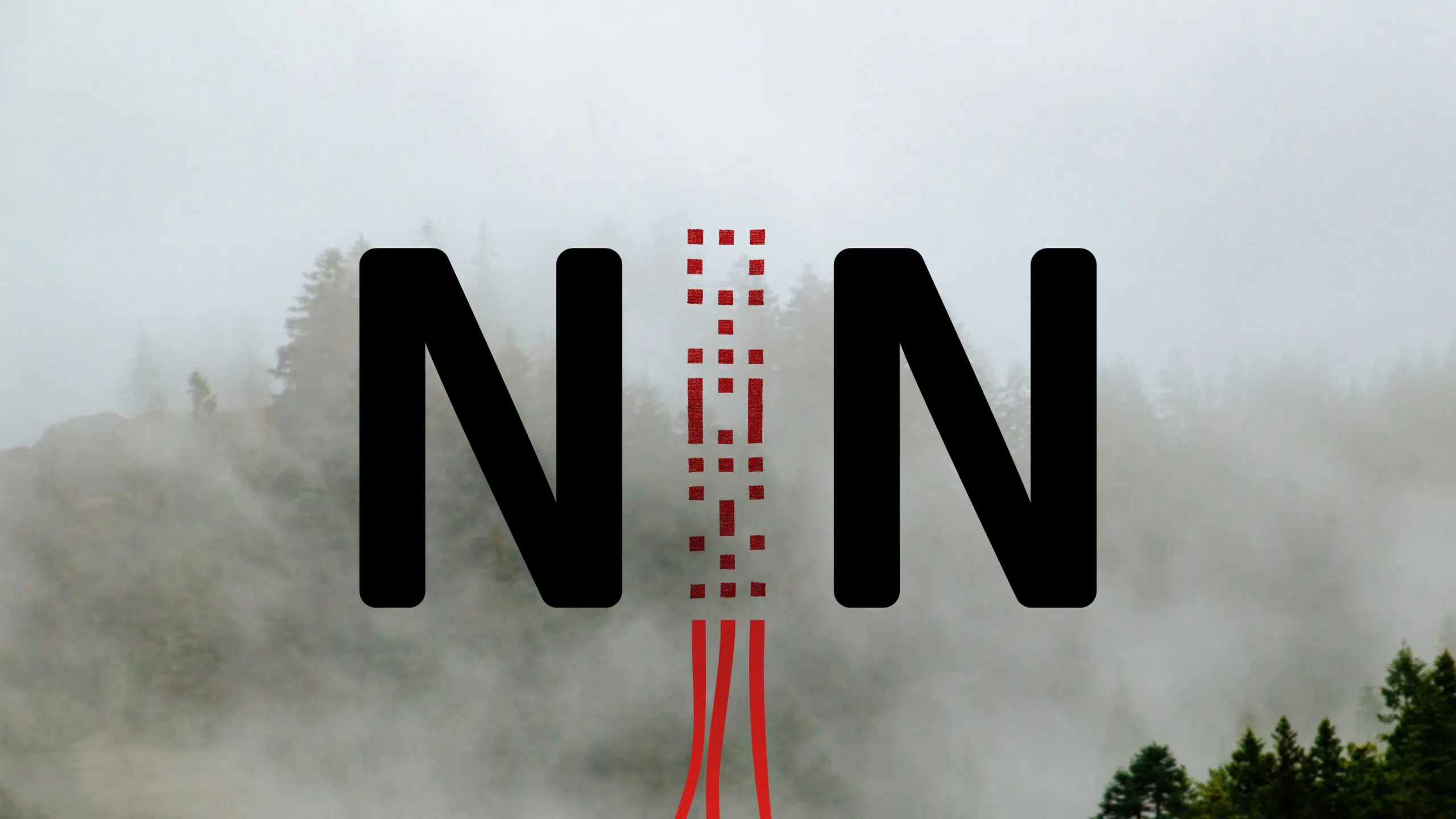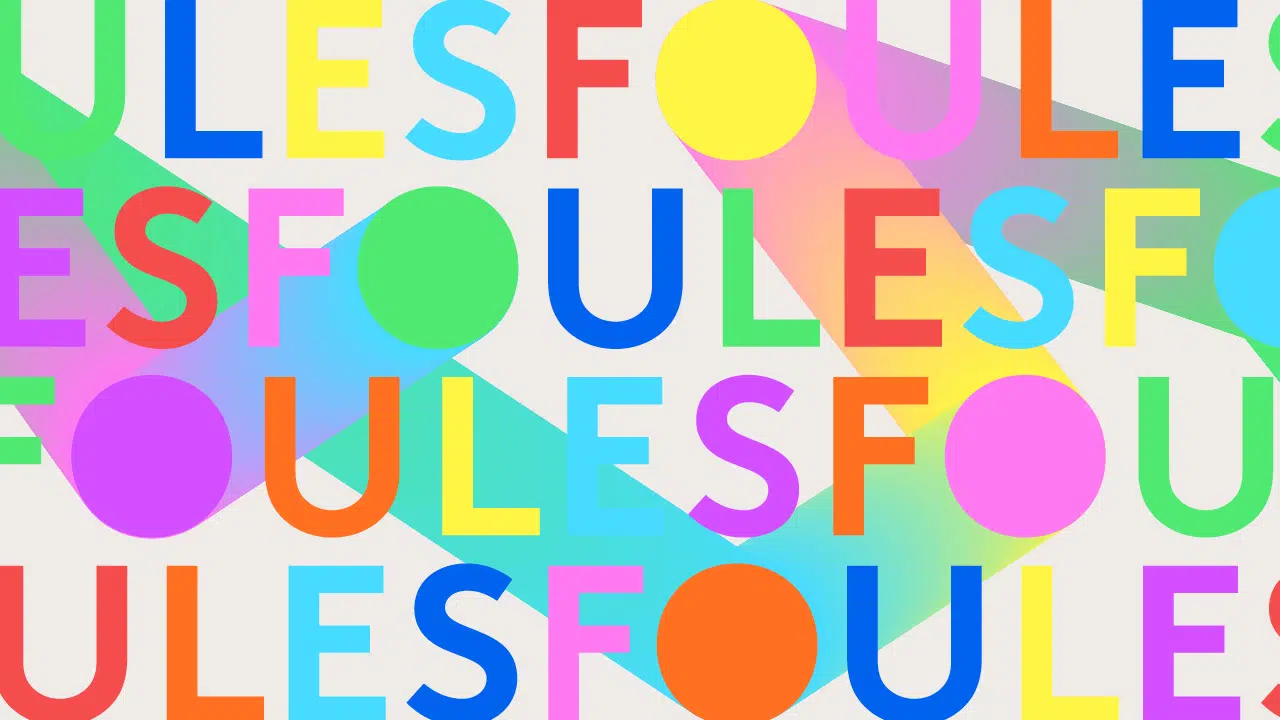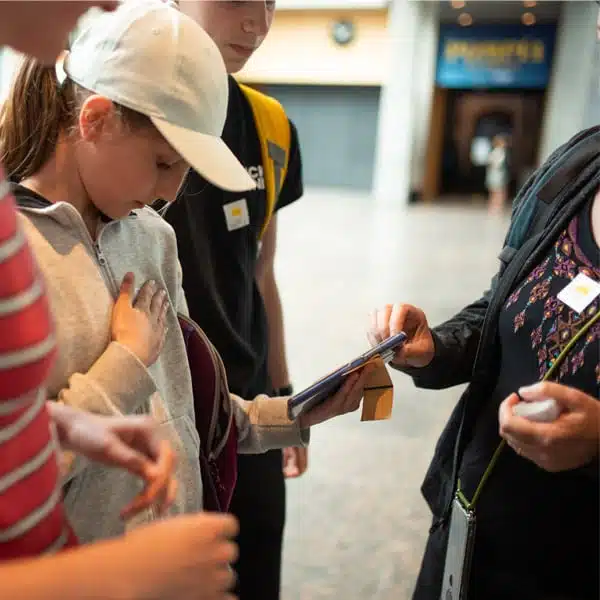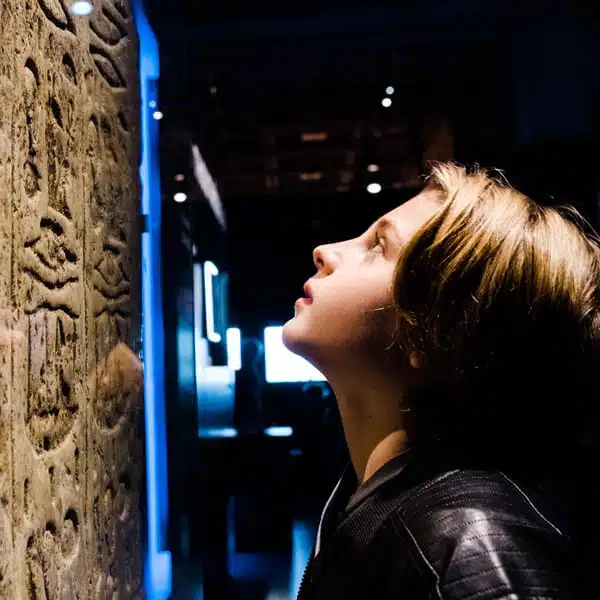Privacy Policy
Last update: September 3rd, 2024
The Musée de la civilisation (hereinafter “Museum”) respects your privacy and is committed to taking the necessary measures to protect your personal information, in accordance with the Act Respecting Access to Documents Held by Public Bodies and the Protection of Personal Information (hereinafter “Act”).
The purpose of this document is to help you understand how the Museum collects, uses, communicates, stores and protects your personal information. It also applies to the Fondation du Musée de la civilisation (hereinafter referred to as the “Foundation”), a duly registered charitable organization that has entrusted the Museum with the task of collecting and processing the personal information required to fulfill its mission.
This applies to all activities involving the collection, processing and retention of personal information, whether used for the benefit of the Museum or the Foundation.
1. Protective measures
The Museum has implemented physical, technological and administrative measures to protect your personal information against accidental loss and unauthorized access, use, modification and disclosure. The following are a few examples:
- Sites protected by security guards, surveillance cameras, management of access to paper documents, documents that are locked up
- Management of access to electronic documents and servers, firewalls, intrusion tests
- Document classification plan, retention schedule, staff training
2. Consent
The Museum only collects and uses personal information with your consent. When a request for consent is made in writing, it is presented separately from all other information.
You are free to consent to or refuse the collection of personal information. You can also change or withdraw your consent at any time. When the collection of personal information is optional, the Museum will inform you.
Internet users under 14 years of age must obtain permission from a parent or guardian before submitting personal information to the Museum. Since technology limits verification of the exact age of its site’s users, the Museum relies on the good faith of users to meet this requirement. The Museum does not knowingly collect personal information from Internet users under the age of 14 without the consent of a parent or guardian. If we learn that we have collected or receive personal information of a child under the age of 14 without the consent of their parent or guardian, we will delete that information.
3. Right of access and rectification of personal information
You have the right to access the personal information that you have provided.
If this personal information is inaccurate, imprecise or incomplete or if you have not authorized its collection, communication or retention, you may email the Museum at [email protected] to rectify or remove it. We will endeavour to handle all requests for rectification or removal of personal information in a timely manner.
4. Collection of personal information
The Museum collects personal information through its web and software properties, such as its websites, mobile app and surveys. The Museum may also collect personal information by means of technological tools on its premises, such as its Wi-Fi network, self-service kiosks and survey kiosks, if you use them.
Personal information is defined by the Act as any information concerning a natural person which directly or indirectly allows the person to be identified. The following is a list of examples of personal information that we may collect with your consent:
- Personal information regarding Identity, such as first name, last name, gender, date of birth, marital status, education level, language of correspondence, membership in designated groups (Indigenous, visible minority, ethnic minority or people living with disabilities) and accessibility needs
- Personal contact information, such as e-mail address, postal address and telephone numbers
- Information about your Museum account, such as the history of purchases, donations and participation in events, as well as communication preferences
- Technical personal information, such as Internet Protocol (IP) address, approximate location, cookies and other technologies on the devices you use to access the Museum’s website
- Information on Internet activity, such as browsing history, search history, interactions with our website and the rate of engagement with our publications
- Financial information, such as payment method
- Employment-related information such as your resumé, educational background and professional references
When you interact with the Museum’s platforms, the IP address associated with your device is automatically collected. The IP address enables us to collect information on your operating system and web browser, the time and duration of your visit to a platform, your virtual location and the pages you consult.
5. Use of personal information
The Museum may use your personal information for the purposes for which it was collected, in accordance with your consent, and for other purposes authorized under the Act.
We may use the information collected for the following purposes:
- To identify you on the Museum’s platforms or at the Museum
- To process transactions made online or at the Museum
- To inform you of activities at the Museum
- To maintain a history of transactions and donations
- To personalize your experience and provide tailored content
- To the purpose of studies and to keep statistics on the Museum’s current and potential clientele
- To keep statistics on visitors’ opinions
- To ensure the security of the Museum’s premises and systems
- To ensure the proper operation of the Museum’s systems
- To administer job selection processes for employment at the Museum
- To maintain an updated list of the Museum’s newsletter subscriber
- To keep the Museum’s subscriber files up to date
- o keep donor files up to date
- To analyze indirect revenue categories
6. Communication of personal information
Access to personal information is limited to Museum staff and our partners who have a legitimate interest in its use, protection, retention or removal.
Examples of Museum’ collaborators include third-party service providers and/or partners, including those offering donation solicitation, database analysis, website development, application development, hosting, maintenance or security services.
Before disclosing personal information to a third party, the Museum must first notify you, unless disclosure without consent is permitted under the Act.
When the Museum discloses personal information, it takes the necessary measures to ensure that the information is kept confidential.
7. Retention of personal information
Personal information is kept for as long as it is required to fulfill the purposes for which it was collected and in accordance with the Museum’s retention schedule guidelines. Personal information may be stored in a physical or technological form, but it is always covered by appropriate protective measures.
When financial transactions are made, the Museum does not retain the payment information you provide. This information is communicated and managed by financial service providers. For more information on the measures put in place to ensure secure financial transactions with the Museum, please consult our Online Purchasing Policy.
8. Account creation
When you purchase tickets online to visit the Museum, you must create an account on our website. If you prefer not to create an account, you can purchase your tickets on site in the Museum lobby. When you create your account, you’ll need to set a password for future access to your account. Your account will remain active until it is deleted.
You do not need to create an account to make a donation. However, you may find it useful to create an account when you donate so you can save your contact information and not have to provide it again.
To apply for a position at the Museum, you need to create an account on the external Mynjobs website, which is where you submit all information required for your application.
9. Cookies
The Museum’s website uses cookies, which allow us to keep statistics on how you use the site, thereby optimizing your browsing experience. There are four categories of cookies:
- Essential cookies
These cookies are essential to keep our web properties working properly and they cannot be deactivated. They are generally set in response to actions you take and that constitute a request for services, such as defining your privacy preferences, logging into your account or filling in forms. - Functional cookies
These cookies improve and customize the functionalities of our web properties. They can be activated by our teams or by third parties whose services are used on various pages. If you do not accept these cookies, some of these services may not operate normally. For instance you will not be able to play the videos. - Analytical cookies
These cookies gather statistics, such as the number of visits and where web traffic is coming from, so we can measure and improve the performance of our web properties. They also identify the most/least visited pages and how pages are used. If you refuse these cookies, some aggregate information will still be collected and compiled anonymously. - Advertising cookies
hese cookies can be placed on our web properties by our advertising partners. They may be used to profile your areas of interest based on your navigation data, so we can offer you personalized advertising based on your interests, and in that way, improve your overall experience. If you refuse these cookies, you will still see ads, but they will be generic instead of based on your personal interests.
Cookies are unique, random identifiers consisting of text files, which are stored on the Internet user’s computer hard drive. They are used to identify the Internet user’s browser, their use of the site and sometimes their IP address. In some cases, closing the browser deletes cookies from the user’s device.
You can change your web browser settings to restrict the use of cookies or delete any cookies stored on your device. However, limiting the use of cookies may alter your browsing experience on the Museum’s web properties since cookies are essential to the proper functioning of these latter.
10. Google Analytics
The Museum uses Google Analytics to monitor the use of its web properties through the use of cookies. This information is depersonalized and allows the Museum to follow its general statistics. Google Analytics tracks traffic on the Museum’s platforms, the popularity of its pages and the general location of its users. This data enables the Museum to improve your browsing experience.
Even if you refuse the use of analytical cookies, aggregate information about your use of our websites will still be collected. Via cookie-free pings, this collection enables the Museum to keep general statistics that do not allow user identification. In addition to enabling the compilation of statistics, these cookie-free pings are essential to online browsing and are generated for every website interaction.
The data used by Google Analytics is stored on servers belonging to Google, which may be located outside Quebec. To learn more about Google’s privacy practices, please refer to their privacy policy.
As with cookies, you can deactivate the use of Google Analytics on your browser by downloading the following extension: Google Analytics Opt-out Browser Add-on.
11. Newsletter
You can subscribe to the Museum newsletter by entering your email address in the appropriate section of our website. When you subscribe to the newsletter, you will receive promotional mailings from the Museum.
If you subscribe to our newsletter, you always have the option to unsubscribe and stop receiving communications from us. To do this, click on the “Unsubscribe” link at the end of each newsletter or contact the Museum at [email protected].
12. Hyperlinks to other sites
The Museum’s web properties may contain hyperlinks so users can visit other websites operated by other entities. Since the Museum has no control over external sites to which certain hyperlinks may direct you, it accepts no responsibility for the availability or content of these sites. Any information you transmit to websites operated by other entities will be subject to these websites’ privacy policies.
Under no circumstances will the Museum be held responsible for any damage resulting from the use or inability to use material contained on sites linked to it with pointers.
13. Amendments
The Museum reserves the right to modify this privacy policy, available on the Museum’s website, at any time. An update notice will be published when changes are made.
14. Complaints
The Museum has a system for handling complaints about the processing of personal information. Full details of this process can be found in our governance policies regarding the protection of personal information. Any complaints should be emailed to [email protected].
15. Questions
If you have any questions about the Museum’s practices regarding the protection of personal information or if you wish to exercise any of your rights with respect to your personal information, please write to [email protected].
UPDATE NOTICE
Published on: August 19, 2024
The Musée de la civilisation (the “Museum”) must make changes to its privacy policy. These latter will take effect 15 days after publication of this notice.
The changes to the privacy policy are in regard to cookies. The implementation of a consent management platform has caused the Museum to reassess the categorization of cookies on its website. As part of the implementation, a function that enables the Museum to keep aggregate data on the use of its website, without cookies, has been activated. Modifications reflecting these changes will be made to sections 9 (Cookies) and 10 (Google Analytics).
November 29, 2023
The Musée de la civilisation (hereinafter “Museum”) respects your privacy and is committed to taking the necessary measures to protect your personal information, in accordance with the Act Respecting Access to Documents Held by Public Bodies and the Protection of Personal Information (hereinafter “Act”).
The purpose of this document is to help you understand how the Museum collects, uses, communicates, stores and protects your personal information. It also applies to the Fondation du Musée de la civilisation (hereinafter referred to as the “Foundation”), a duly registered charitable organization that has entrusted the Museum with the task of collecting and processing the personal information required to fulfill its mission.
This applies to all activities involving the collection, processing and retention of personal information, whether used for the benefit of the Museum or the Foundation.
1. Protective measures
The Museum has implemented physical, technological and administrative measures to protect your personal information against accidental loss and unauthorized access, use, modification and disclosure. The following are a few examples:
- Sites protected by security guards, surveillance cameras, management of access to paper documents, documents that are locked up
- Management of access to electronic documents and servers, firewalls, intrusion tests
- Document classification plan, retention schedule, staff training
2. Consent
The Museum only collects and uses personal information with your consent. When a request for consent is made in writing, it is presented separately from all other information.
You are free to consent to or refuse the collection of personal information. You can also change or withdraw your consent at any time. When the collection of personal information is optional, the Museum will inform you.
Internet users under 14 years of age must obtain permission from a parent or guardian before submitting personal information to the Museum. Since technology limits verification of the exact age of its site’s users, the Museum relies on the good faith of users to meet this requirement. The Museum does not knowingly collect personal information from Internet users under the age of 14 without the consent of a parent or guardian. If we learn that we have collected or receive personal information of a child under the age of 14 without the consent of their parent or guardian, we will delete that information.
3. Right of access and rectification of personal information
You have the right to access the personal information that you have provided.
If this personal information is inaccurate, imprecise or incomplete or if you have not authorized its collection, communication or retention, you may email the Museum at [email protected] to rectify or remove it. We will endeavour to handle all requests for rectification or removal of personal information in a timely manner.
4. Collection of personal information
The Museum collects personal information through its web and software properties, such as its websites, mobile app and surveys. The Museum may also collect personal information by means of technological tools on its premises, such as its Wi-Fi network, self-service kiosks and survey kiosks, if you use them.
Personal information is defined by the Act as any information concerning a natural person which directly or indirectly allows the person to be identified. The following is a list of examples of personal information that we may collect with your consent:
- Personal information regarding Identity, such as first name, last name, gender, date of birth, marital status, education level, language of correspondence, membership in designated groups (Indigenous, visible minority, ethnic minority or people living with disabilities) and accessibility needs
- Personal contact information, such as e-mail address, postal address and telephone numbers
- Information about your Museum account, such as the history of purchases, donations and participation in events, as well as communication preferences
- Technical personal information, such as Internet Protocol (IP) address, approximate location, cookies and other technologies on the devices you use to access the Museum’s website
- Information on Internet activity, such as browsing history, search history, interactions with our website and the rate of engagement with our publications
- Financial information, such as payment method
- Employment-related information such as your resumé, educational background and professional references
When you interact with the Museum’s platforms, the IP address associated with your device is automatically collected. The IP address enables us to collect information on your operating system and web browser, the time and duration of your visit to a platform, your virtual location and the pages you consult.
5. Use of personal information
The Museum may use your personal information for the purposes for which it was collected, in accordance with your consent, and for other purposes authorized under the Act.
We may use the information collected for the following purposes:
- To identify you on the Museum’s platforms or at the Museum
- To process transactions made online or at the Museum
- To inform you of activities at the Museum
- To maintain a history of transactions and donations
- To personalize your experience and provide tailored content
- To the purpose of studies and to keep statistics on the Museum’s current and potential clientele
- To keep statistics on visitors’ opinions
- To ensure the security of the Museum’s premises and systems
- To ensure the proper operation of the Museum’s systems
- To administer job selection processes for employment at the Museum
- To maintain an updated list of the Museum’s newsletter subscriber
- To keep the Museum’s subscriber files up to date
- To keep donor files up to date
- To analyze indirect revenue categories
6. Communication of personal information
Access to personal information is limited to Museum staff and our partners who have a legitimate interest in its use, protection, retention or removal.
Examples of Museum’ collaborators include third-party service providers and/or partners, including those offering donation solicitation, database analysis, website development, application development, hosting, maintenance or security services.
Before disclosing personal information to a third party, the Museum must first notify you, unless disclosure without consent is permitted under the Act.
When the Museum discloses personal information, it takes the necessary measures to ensure that the information is kept confidential.
7. Retention of personal information
Personal information is kept for as long as it is required to fulfill the purposes for which it was collected and in accordance with the Museum’s retention schedule guidelines. Personal information may be stored in a physical or technological form, but it is always covered by appropriate protective measures.
When financial transactions are made, the Museum does not retain the payment information you provide. This information is communicated and managed by financial service providers. For more information on the measures put in place to ensure secure financial transactions with the Museum, please consult our Online Purchasing Policy.
8. Account creation
When you purchase tickets online to visit the Museum, you must create an account on our website. If you prefer not to create an account, you can purchase your tickets on site in the Museum lobby. When you create your account, you’ll need to set a password for future access to your account. Your account will remain active until it is deleted.
You do not need to create an account to make a donation. However, you may find it useful to create an account when you donate so you can save your contact information and not have to provide it again.
To apply for a position at the Museum, you need to create an account on the external Mynjobs website, which is where you submit all information required for your application.
9. Cookies
The Museum’s website uses cookies, which allow us to keep statistics on how you use the site, thereby optimizing your browsing experience. There are three categories of cookies:
-
Performance cookies
These cookies enable us to measure the use of our web properties, ensure that they are working properly and make any necessary improvements.
-
Functional cookies
These cookies allow us to keep statistics on the use of our web properties.
-
Advertising cookies
These cookies allow us to offer you a personalized experience. They help the Museum identify trends and match users with a preference profile to provide content that aligns with your interests. The Museum does not display third‑party advertising on its website or web properties. It uses these cookies to promote its own products, such as exhibitions and activities.
Cookies are unique, random identifiers consisting of text files, which are stored on the Internet user’s computer hard drive. They are used to identify the Internet user’s browser, their use of the site and sometimes their IP address. In some cases, closing the browser deletes cookies from the user’s device.
You can change your web browser settings to restrict the use of cookies or delete any cookies stored on your device. However, limiting the use of cookies may alter your browsing experience on the Museum’s web properties since cookies are essential to the proper functioning of these latter.
10. Google Analytics
The Museum uses Google Analytics to monitor the use of its web properties through the use of cookies. This information is depersonalized and allows the
Museum to follow its general statistics. Google Analytics tracks traffic on the Museum’s platforms, the popularity of its pages and the general location of its users. This data enables the Museum to improve your browsing experience.
The data used by Google Analytics is stored on servers belonging to Google, which may be located outside Quebec. To learn more about Google’s privacy practices, please refer to their privacy policy.
As with cookies, you can deactivate the use of Google Analytics on your browser by downloading the following extension: Google Analytics Opt-out Browser Add-on.
11. Newsletter
You can subscribe to the Museum newsletter by entering your email address in the appropriate section of our website. When you subscribe to the newsletter, you will receive promotional mailings from the Museum.
If you subscribe to our newsletter, you always have the option to unsubscribe and stop receiving communications from us. To do this, click on the “Unsubscribe” link at the end of each newsletter or contact the Museum at [email protected].
12. Hyperlinks to other sites
The Museum’s web properties may contain hyperlinks so users can visit other websites operated by other entities. Since the Museum has no control over external sites to which certain hyperlinks may direct you, it accepts no responsibility for the availability or content of these sites. Any information you transmit to websites operated by other entities will be subject to these websites’ privacy policies.
Under no circumstances will the Museum be held responsible for any damage resulting from the use or inability to use material contained on sites linked to it with pointers.
13. Amendments
The Museum reserves the right to modify this privacy policy, available on the Museum’s website, at any time. An update notice will be published when changes are made.
14. Complaints
The Museum has a system for handling complaints about the processing of personal information. Full details of this process can be found in our governance policies regarding the protection of personal information. Any complaints should be emailed to [email protected].
15. Questions
If you have any questions about the Museum’s practices regarding the protection of personal information or if you wish to exercise any of your rights with respect to your personal information, please write to [email protected].
February 8, 2018
Personal Information
Musée de la civilisation respects Canada’s Privacy Act. As a result, this website is protected by physical and digital barriers, as well management policies that were created to protect the information users share.
Musée de la civilisation will not in any way transmit, sell, lease, exchange or divulge to any third parties any of the personal information collected on the site during regular transactions, unless the website user has specifically given consent or we are required to by law.
Musée de la civilisation relies on an outside supplier to handle our online transactions. However, the personal information that this supplier receives is for transactional purposes and will, in no case, be shared by this supplier with third parties.
Although Musée de la civilisation may compile statistics on its web visitors, clients, sales, online traffic and other pertinent markers, the data does not contain any personal information enabling visitors to be identified. Should Musée de la civilisation be constrained to divulge any information about a visitor collected during an online transaction, it will only do so because it was reasonably necessary in order to respect the law, to apply the terms of use of Musée de la civilisation’s website, or to respect the rights, property and safety of Musée de la civilisation, its users and any third parties.
In certain sections of this website, we may store some information on site visitors’ computers (“cookies”) to gain a better understanding of how they use this website. Cookies are pieces of text that a web server can store on the hard drive of computers used by Internet users. They are used to store information about the browser being used and do not in any way reveal the identity of the user. In some cases, simply closing the browser will delete the cookie.
Privacy
Musée de la civilisation cannot guarantee the confidentiality of any interactions that take place on the Internet. Therefore, Musée de la civilisation cannot in any way be held responsible for any damages incurred to the Internet user following use of content on this site or on social media.
For online transactions, Musée de la civilisation will only ask for the personal information necessary to complete the transaction (i.e. first and last name, e-mail address, mailing address, language of correspondence, phone number). Musée de la civilisation never keeps credit card information ; rather, all such data is sent directly to the financial institutions mandated to authorize said transactions.
If you sign up for our digital services, you may, at any time, request that your name be withdrawn from Musée de la civilisation mailing list. If you have a question or comment to share about personal information and our privacy policy, please send an e-mail to [email protected].
Utilisation du site par des mineurs
Internet users under the age of 18 must obtain permission from a parent or guardian before sharing any personal information on Musée de la civilisation website. As technology does not enable us to verify the exact age of visitors to this website, Musée de la civilisation relies on good faith that visitors under the age of 18 have accepted this term of use.
Warning
The content of this website is provided without express or implicit guarantees. Furthermore, as we cannot control what content is provided on websites that this site may link to, Musée de la civilisation is not responsible for the content and accessibility of these websites.
Musée de la civilisation cannot, in any circumstance, be held responsible for any damages incurred following the use or the inability to use any content material appearing on this website or on the websites linked to or linking to this site.










